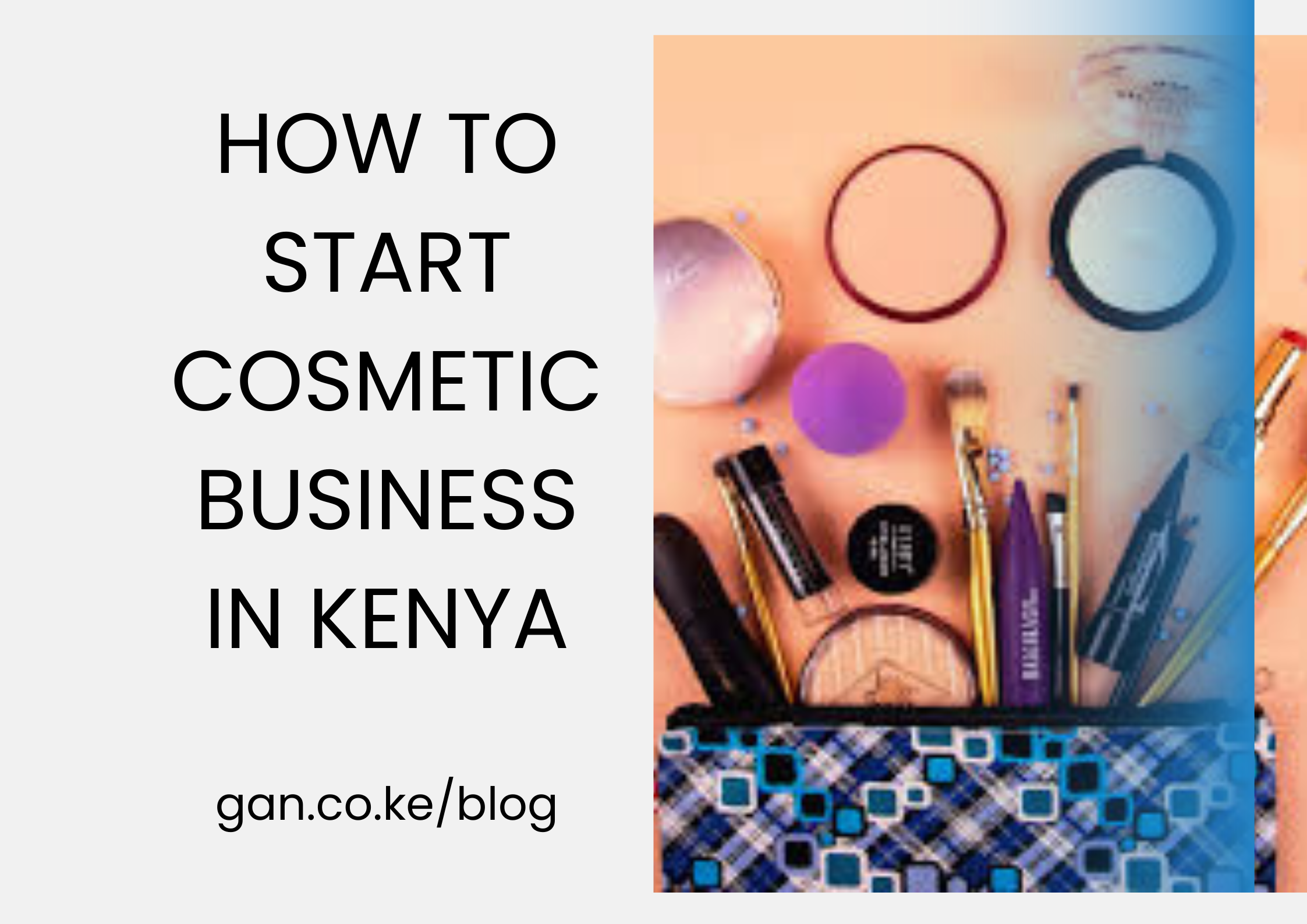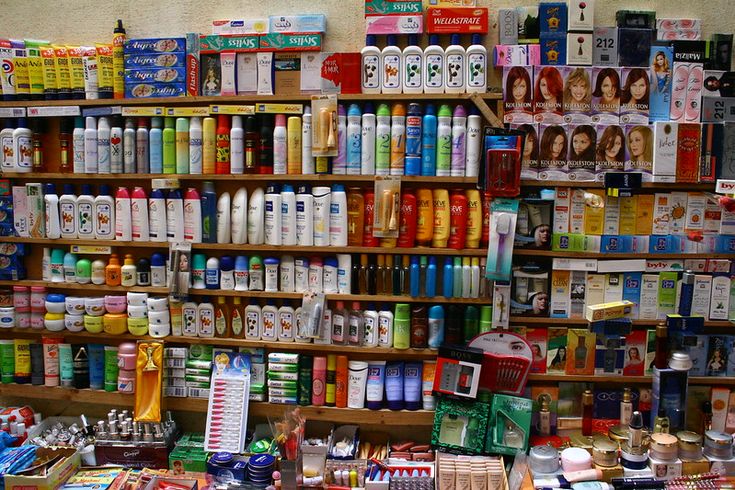
Do you want to start a business in Kenya selling beauty and cosmetic stuff? It’s a smart move! A lot of people out there are looking for beauty products for their skin and hair, and to look good. Owning a beauty shop can make you good money because everyone loves feeling fancy and neat. This guide will show you the simple steps to get going and succeed in Kenya’s beauty world.
Starting Cost Breakdown
| Item | Cost(in KSH) |
| Business registration | 10,000-20,000 |
| Rental space for shop | 10,000-50,000 |
| Initial inventory | 50,000-100,000 |
| Licenses and permits | 5,000-15,000 |
| Furniture and fittings | 20,000-50,000 |
| Marketing and advertising | 10,000-30,000 |
| Total | 105,000-265,000 |
How to Start a Profitable Beauty and Cosmetic Store
Conduct market research and planning
You must prepare ahead and perform in-depth market research before entering the cosmetics industry. By doing this, you will be better able to comprehend your target market and satisfy the requirements and tastes of your clientele.
Analyze the trends, consumer behavior, and demography of the local market first. Subsequently, evaluate rivals and their offerings to pinpoint weaknesses and prospects. Lastly, a niche in the cosmetics sector that fits your target market and hobbies must be found. Find unmet client wants and create a USP that makes your company stand out from the competition to achieve this.

Meet legal and regulatory requirements
You must adhere to Kenyan legal and regulatory regulations for your cosmetics business. Start by registering your company with the appropriate government agencies. Make sure you select a suitable business name and structure—such as a limited corporation or partnership—while doing this.
To lawfully conduct your business, you must obtain the required licenses and permits after registering. This covers licenses for businesses, health and safety regulations, and product certification and registration to guarantee that your goods live up to quality requirements.
In Case You Missed: How to Start a Profitable Tech Business in Kenya
Source suppliers and products
Locating trustworthy vendors is essential for your cosmetics company. Thus, you must conduct research and find regional vendors that provide premium cosmetics. Additionally, you can import goods from reliable foreign vendors.
Give quality and compliance priority while sourcing products. Make sure vendors have the necessary certificates and test the products to achieve this. To build solid and trustworthy relationships, you should also negotiate and evaluate suppliers.
Create a Beauty and cosmetic business plan
For your cosmetic business to succeed in Kenya, you must create a compelling business strategy. Start by clearly defining your company’s goals and objectives. Next, develop a marketing plan that includes tactics for positioning, price, branding, and promotions.
Budgeting and financial planning are important. Compute the start-up costs, which encompass purchasing the goods, advertising expenditures, and running costs. Finally, to determine sustainability and profitability, project your income and expenses.
Set up the business
It’s time to make your plan more firm. Initially, think about your cosmetic business’s location and infrastructure. If you want to open a retail store, you will need to select a good site. Or look into internet resources.
Get the tools and resources your company needs after deciding on a location. By keeping an eye on stock levels and guaranteeing effective product management, inventory management systems can help you increase efficiency. A visually appealing presentation can also be achieved by investing in display fixtures and packaging materials.
Market and promote your Beauty business
For your cosmetics business to succeed in Kenya, you must have a strong brand presence. Start by developing a distinctive brand identity that appeals to your target demographic to jumpstart your marketing efforts. Additionally, to interact with possible clients, you can create a polished website and maintain active social media accounts. Then, to reach your target audience, put successful marketing strategies into practice. Using content marketing to produce interesting and educational content about cosmetics is one way to do this.
If you’d rather reach a wider audience, you can work with influencers and beauty bloggers, exhibit your products at trade fairs and events, and network with people in your business.
Establish sales and distribution channels
You must create a sales channel to efficiently distribute your goods to clients Simply put, sales channels are how you distribute your cosmetics to consumers who require them. If you own a physical store, invest in a stylish retail space that showcases your brand. Alternatively, make use of e-commerce and internet sales platforms to expand your clientele.
Working together with distributors and retailers is an additional strategy to increase the product’s reach. Develop a relationship with wholesalers who can supply stores with your product to do this. Lastly, you can collaborate with spas or beauty parlors to market and sell your makeup lines.
Focus on operational management
To run your beauty and cosmetics business in Kenya, you must employ the correct personnel and use efficient equipment. This is known as operational management. Determine the essential roles and duties required to manage the business first. Subsequently, select the most qualified candidates and implement a training program to give your employees superior customer service abilities and product knowledge.
To track stock levels, expedite reordering procedures, and reduce waste, you must put in place efficient inventory management systems after recruiting employees.
Work on customer service and retention
Maintaining and increasing client satisfaction requires providing exceptional customer service. Your employees must receive professional training so they can interact with consumers and meet their needs. Establish a mechanism to efficiently manage returns and complaints as well.
To increase client loyalty, put in place a reward system or loyalty program. Make sure to use newsletters or customized offers to keep clients engaged while doing that. For your consumer base to remain loyal and make repeat purchases, it’s critical to establish engaging and pleasant interactions.
Implement a financial management and growth strategy
Monitoring your financial performance is essential to maintaining the success and expansion of your cosmetics company. You should routinely review your financial statements and keep correct accounting records. Additionally, pinpoint places in need of development and base choices on financial knowledge.
You not only prepare for the future of your firm by recognizing expansion prospects, but you also manage your funds wisely.
How to identify a profitable Beauty and cosmetic niche
Research the market
Investigate Kenya’s cosmetic market first. Recognize consumer preferences and emerging trends, and quickly sell cosmetics. Examine the current competition and pinpoint any holes or unexplored territories.
Identify target customers
Based on their tastes, purchasing patterns, and demographics, identify your target market. You can target youngsters, working adults, or members of particular ethnic communities who have particular cosmetic demands.
Assess customer needs
Examine the requirements and preferences of your intended clientele. Are there certain hair types, skin conditions, or beauty routines that are common in Kenya? Seek out areas of the market with gaps where consumers are not receiving enough attention or where there is not enough choice.
Consider cultural factors
Kenya is home to many ethnic groups, each with unique customs and preferences about appearance. By supplying goods that are tailored to the specific demands of particular ethnic consumers, you may capitalize on this diversity of cultures.
Evaluate competitors
Examine the companies that rival yours in the Kenyan cosmetics sector. Begin by identifying any places where they aren’t satisfying client requests and any gaps in their product offering. Once you are aware of their shortcomings, set your company apart by giving a superior value proposition or something original.
Sustainability and natural ingredients
Natural ingredients and sustainability are becoming more and more important to consumers. To meet the increased demand for sustainable products, think about providing eco-friendly or organic cosmetics.
Local sourcing
Customers value items manufactured with local components, and Kenya boasts a rich biodiversity. As such, you can draw in customers who appreciate locally sourced goods by adding traditional Kenyan ingredients like shea butter, coconut oil, or aloe vera to your product range.
Unique selling proposition (USP)
Create a USP that distinguishes your company from rivals. It might be emphasizing cruelty-free items, providing individualized counsel, or providing standard customer service. Work on making yourself stand out while giving your clients something of value.
Pros and Cons of Cosmetic and Beauty Business
Pros
- High demand in Kenya for personal hygiene and cosmetics
- Possibility of significant financial gain
- Chance to express your originality and love of beauty
- Flexibility regarding location and working hours
Cons
- Fierce rivalry between new and established brands
- The necessity of constant innovation and keeping abreast of emerging trends
- Capital-intensive company requiring a substantial upfront expenditure
- Difficult market circumstances, such as price sensitivity and fake goods
Conclusion
In Kenya, launching a cosmetics company can be a lucrative endeavor, but it takes careful preparation and execution.






